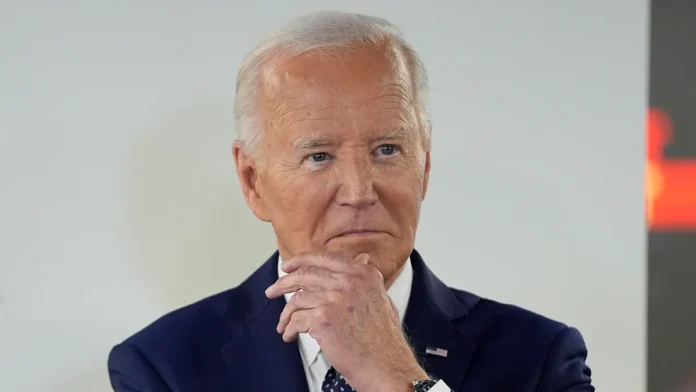A scathing new book detailing President Joe Biden’s alleged cognitive decline has intensified scrutiny of the Democratic Party’s aging leadership, prompting renewed calls for generational change within a party long governed by seniority.
The exposé by journalists Jake Tapper and Alex Thompson has sent shockwaves through Washington, alleging that Biden’s inner circle concealed signs of his deteriorating health. The 82-year-old president was recently diagnosed with prostate cancer, adding fuel to concerns already simmering among voters and party members.
But Biden is not alone in drawing criticism. Six Democratic lawmakers, most in their 70s, have died in the past year, leaving the party underrepresented in key congressional votes. Just last week, House Republicans passed President Donald Trump’s controversial tax and spending bill by a single vote, while three Democratic seats sat empty due to recent deaths. The bill, which Democrats say could deprive over eight million Americans of health care, might have been stalled if those seats had been filled.
“Imagine if one of the older and sicker Dems would’ve retired instead of died in office,” political strategist Rebecca Katz posted on X, highlighting frustrations over lawmakers clinging to office amid declining health.
One such case involved Representative Gerry Connolly, 75, who died of esophageal cancer just a day after being selected to lead the powerful House Oversight Committee. Critics argue that younger members, such as 35-year-old Alexandria Ocasio-Cortez, who lost out on the position, are being sidelined in favor of maintaining institutional traditions.
The issue of age extends across Democratic leadership: Senate Majority Leader Chuck Schumer is 74, and former House Speaker Nancy Pelosi, 85, remains highly influential. Though Republicans face similar concerns, Trump is 78 and former Senate GOP leader Mitch McConnell, 83, stepped down earlier this year, Democrats, as the minority party in Congress, appear to be more deeply impacted by their aging leadership.
The party’s entrenched seniority system, which rewards lawmakers with leadership roles based on tenure, has left top Democrats on more than half of House committees aged 70 or older. In contrast, their Republican counterparts average a younger 62 years of age.
The generational divide is increasingly pronounced. David Hogg, 25, recently elected vice chair of the Democratic National Committee, has called for primary challenges to “ineffective” older Democrats, a move that drew fire from party elders, including 80-year-old strategist James Carville, who branded Hogg a “contemptible little twerp.”
Activists and analysts alike see the revelations about Biden’s health as a tipping point. “If this is the most important election of our lifetime, then the base expects you to act like it,” political commentator Molly Jong-Fast said on MSNBC. “They expect you to elevate the people who can speak better than the people who are your friends.”
As Democrats look ahead to the 2026 midterms and beyond, the pressure is mounting for a generational reset, before the party’s reliance on aging leadership becomes an even greater liability.
Written By Rodney Mbua



















